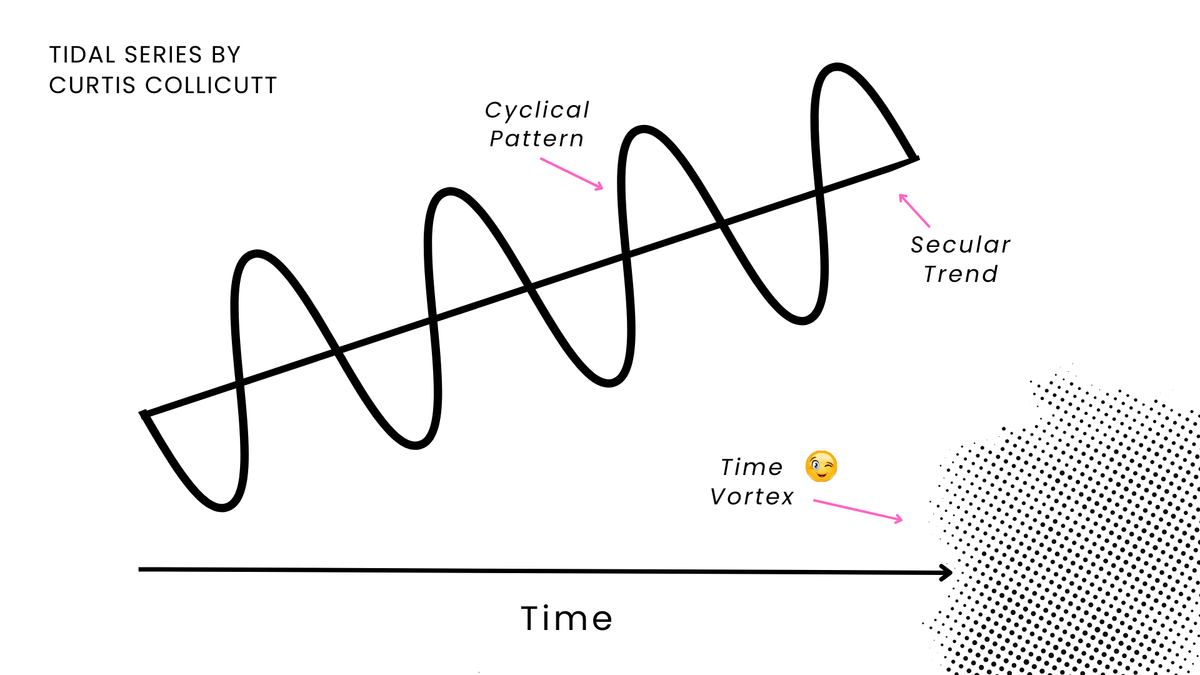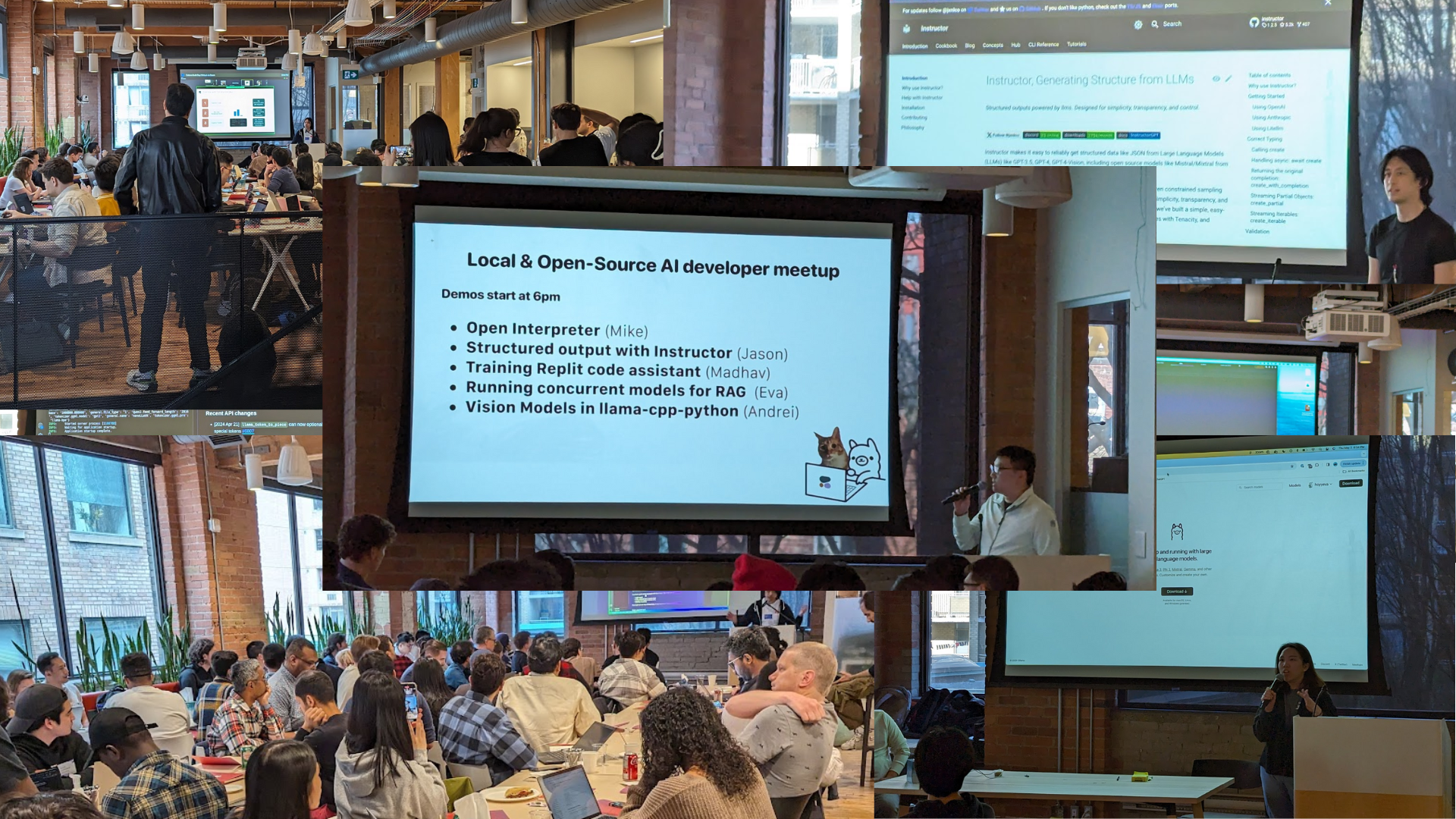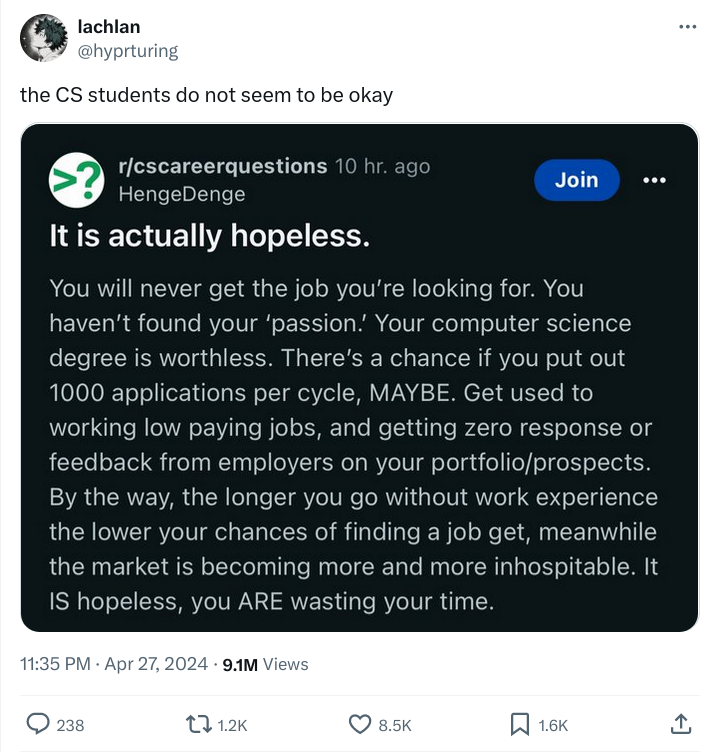Is AI a Generational Movement for Developers?
Over the last few weeks I've been lucky enough to attend AI related events in Toronto. From those events I've developed some views on what is going on with AI and new developers.


Over the last few weeks I've been lucky enough to attend AI related meetups here in Toronto. From those events I've developed some views on what is going on with AI and developers, both new and experienced.
A Secular Shift
What we are seeing in technology at the moment with artificial intelligence is what people in the financial world would call a secular shift. Not a fad, but real secular growth.
Artificial intelligence (AI) has been top-of-mind for investors for much of 2023, fueling a strong rally in the S&P 500. While it may take time for AI to have a similar impact on small cap stocks, we share the market’s enthusiasm and believe AI has the potential to become one of the most disruptive secular growth trends ever. - https://www.osterweis.com/insights/artificial-intelligence
Secular change is the idea of long-term irreversible changes in technology and how we adapt to those changes, who takes them up, and who ignores them.
Overall, my point is that, anecdotally, developers coming out of undergraduate or graduate computer science programs, or any new developers, are choosing to work at AI companies if they can, or if they can't, then they are opting to work with AI, presumably because they can feel this secular shift (I don't know–I guess in their bones or something 😄). Now, that could just be because that's where the money is, due to the tremendous amount of funding going into AI both startups and enterprises alike...or, it could be because of a gut feeling regarding the future of AI.
Computer Science Hiring Lull
I've seen anecdotal information about how difficult it is to get hired as a new grad, as well as the fact that companies are looking for more senior employees who can organize themselves, as opposed to requiring a manager (middle management has also been hard hit by recent layoffs).
There is definitely some evidence of fewer CS grads being hired.

(See here for the original Reddit post.)
University graduates – and especially bootcamp grads – face what is probably the toughest job market since the Dotcom Bust, back in 2001. For this group, the market has been very difficult since the pandemic began and companies hired fewer grads due to the rise of remote working, which made it harder to mentor less experienced developers. As a result, many companies simply stopped hiring interns or new grads, even during the hiring boom of 2021-2022. - https://newsletter.pragmaticengineer.com/p/zirp-software-engineers
However, this slump is cyclical, not secular. As the picture at the top of this post shows, there are cyclical components and there are secular components to technology. I don't think AI will reduce the need for developers, it will increase their productivity, and we will use MORE computing and MORE applications, not less. The secular shift is the growth of AI. The cyclical is a hiring lull.
I believe the hiring lull is due to a ZIRP hangover in combination with remote work and salary arbitrage. However, this cycle will experience an upswing at some point in the near future, although it remains to be seen if we can reach similar heights as in the ZIRP/pandemic era. It may not be necessary to get back to the "old days" to have a good if not great job market though. So temporary bad news for new graduates, but overall I expect secular growth and a rebound in hiring.
Open Source Models Play a Big Part
The accessibility of open source LLMs plays a large role in the use of AI by new developers. It's relatively easy to get started and build on what others have created through the open source environment and tools/communities such as Hugging Face 🤗. Using open source models is not the only way to get involved in AI, and in fact it may not be as easy as simply using a model such as ChatGPT 4 provided by OpenAI, but it is still an extremely popular and exciting route, as these LLMs are often smaller and easier to customize, and can be made to have unique applications.
The energy in the space, with new model releases every day, is made even more exciting by the promise of open source where, as I’ve observed before, anyone can make a contribution and have it be meaningful regardless of credentials, and there are plenty of contributions to be made. If the fundamental question of the web is, “Why wasn’t I consulted,” open-source in machine learning today offers the answer, “You are as long as you can productively contribute PRs, come have a seat at the table.” - https://blog.mozilla.org/en/mozilla/ai/open-source-llms-large-language-models-mozilla-ai/
Some caveats:
- Some of the open source models are produced by commercial organizations, such as Meta, who may at some point decide to stop making the models open and keep future versions commercial. Building large LLMs is expensive and likely only available to organizations with massive amounts of capital. (However, conversely, it may be possible to fine-tune other smaller model for much less–perhaps even a few dollars, which is within the realm of most developers.)
- The term "open source" may be applied loosely. The actual licenses may forbid certain usage.
- Some of the required components, e.g. training weights, needed to fully replicate the LLMs may not be provided, effectively making them only partially open.
But, Then Again, the Use of New Technology Is Typically Generational
Of course, new technology is typically generational. Programming VCRs, for example. Creating mobile apps may be another. Social media. There are many. I think the key part here is recognising the secular change and thinking about who is going to embrace that newness. We have the innovation itself, demographic shifts, skill transitions, how the technology is adopted based on cultural values or societal needs, and of obviously the economic impact–these all affect adoption. Perhaps a lack of historical bias is one of the larger influences.
Working With AI Will Be Second Nature to Newly Minted Developers
So while these new graduates may have a difficult time getting hired today, that will eventually change. I don't think we'll be using less technology, less computers, less programming. But, until the cyclical upswing, many of them will spend their free time hacking away at AI, learning how it works, building their own LLMs, fine-tuning them, moving the technology forward, all the while creating innovative applications based on the technology. I mean, we've already seen companies with a handful of people create multi-billion dollar organizations:
Facebook acquired Instagram for a record-setting $1 billion in 2012, back when the company only had 13 employees, including Systrom and co-founder Mike Krieger. - https://www.msn.com/en-us/money/companies/where-instagram-s-first-employees-are-today/ar-AA1jtDTt
There's definitely the potential for a small number of developers, maybe even only just one, to create an AI-driven application that's worth a tremendous amount of money. Can LLM -based AI be a moat? That remains to be seen, but certainly people will try to make it one.
Ultimately, again based on my experience at local events in Toronto, many new developers seem to enjoy working with AI. In five years, ten years, they'll be the ones working in big companies, and they'll take the things they've learned about AI–both the good and the bad–and the things they love about the field into those companies and build with them.
